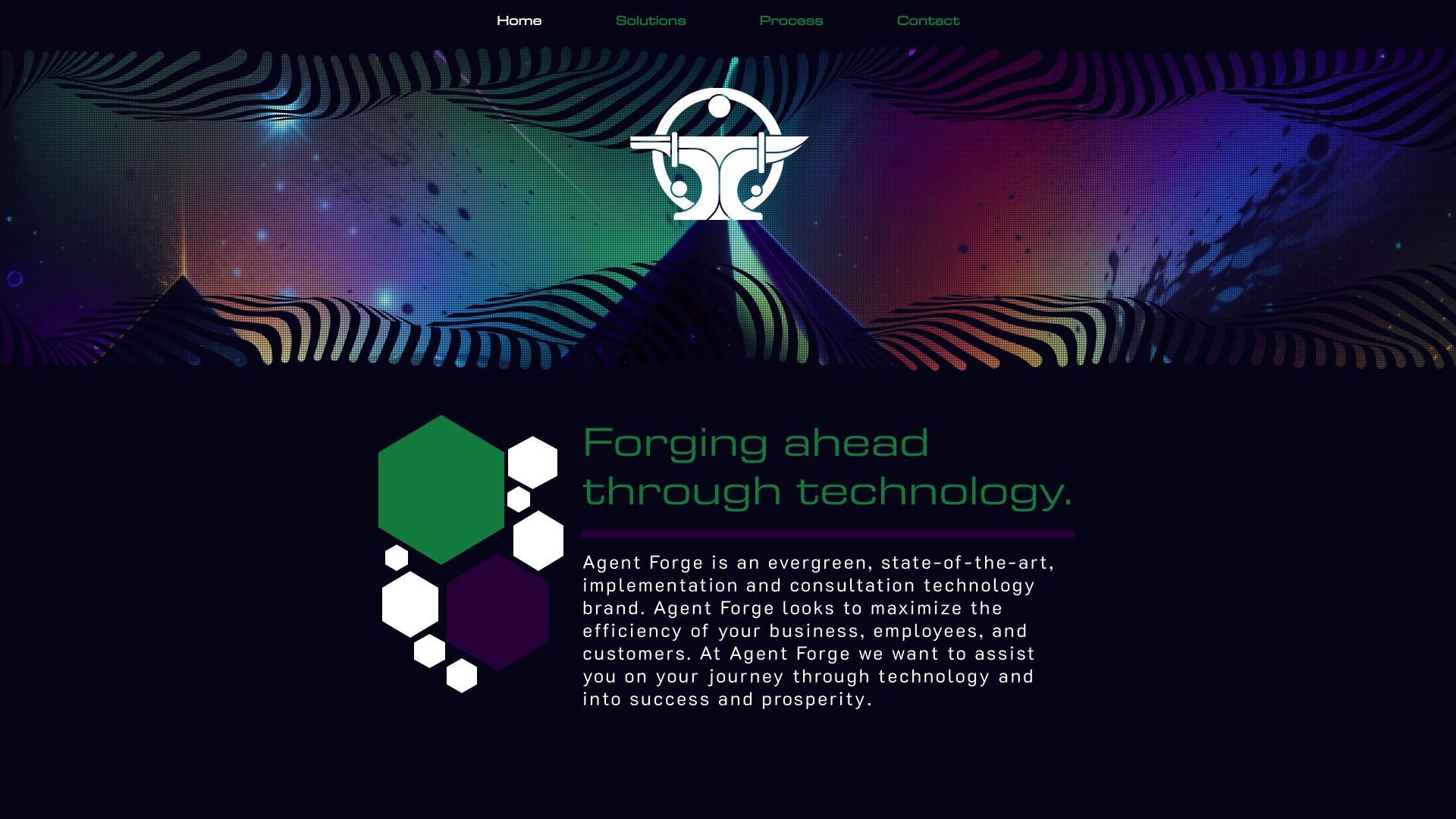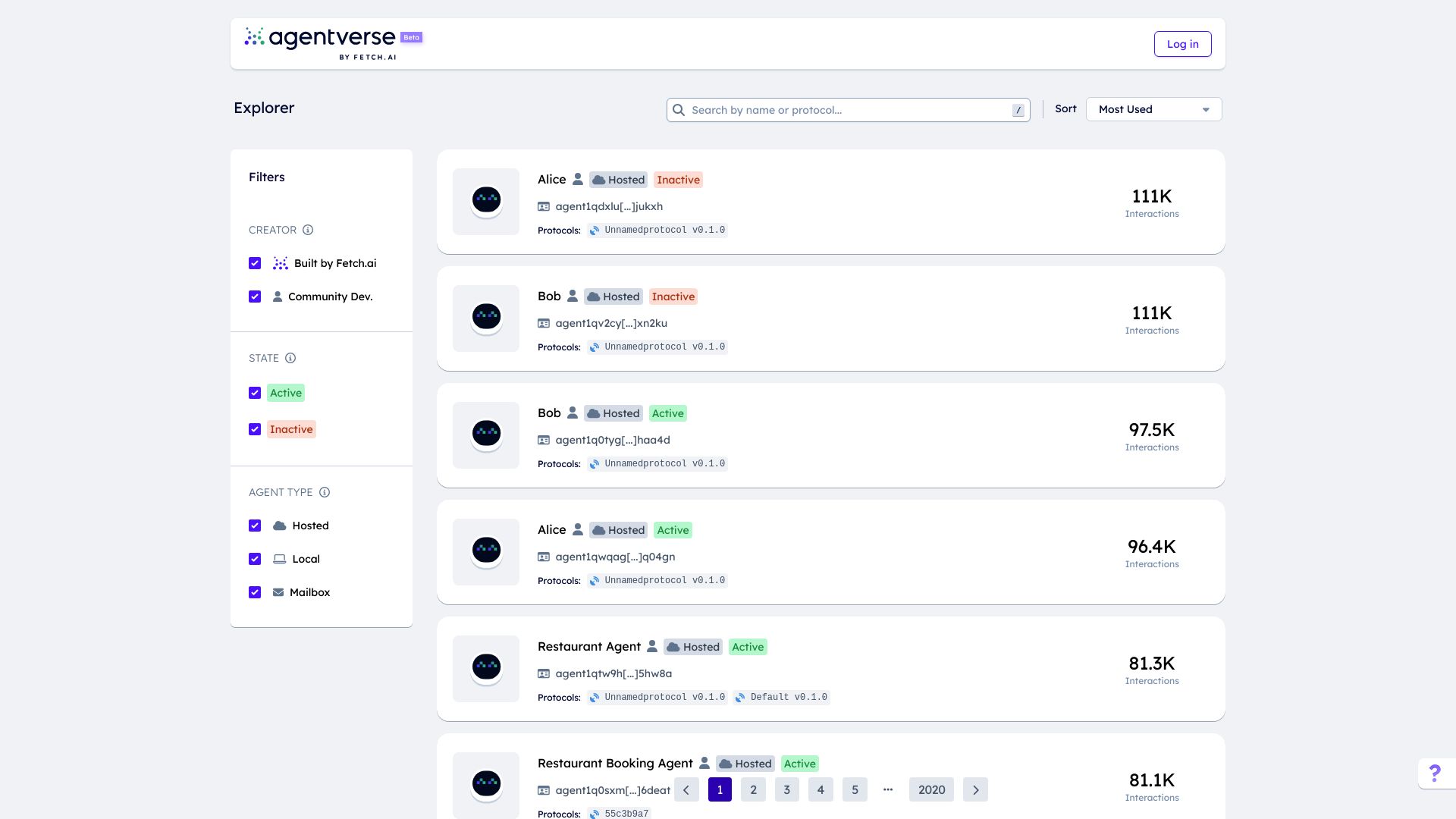Agent Forge vs. AgentVerse: Comparing Open-Source AI Development Platforms
AI agent development platforms empower users to create sophisticated, autonomous software programs capable of transforming business operations and enhancing productivity. This comparison explores Agent Forge vs. AgentVerse, two open-source frameworks revolutionizing AI agent creation. We’ll examine their key features, strengths, and limitations to help developers, business leaders, and AI enthusiasts make informed decisions.
By dissecting these platforms’ capabilities in areas such as model support, development environments, and security features, readers will gain valuable insights into the current state of AI agent technology and discover how SmythOS elevates the standard for accessible, powerful, and secure AI development.
Agent Forge Overview
Agent Forge empowers developers to create, host, and manage AI agents through an open-source Python framework. This platform facilitates the rapid development of autonomous agents and cognitive architectures, catering to both novice and experienced AI enthusiasts.


Agent Forge supports major Large Language Models like Claude, GPT, and self-hosted models via Oobabooga. The framework’s flexible agent memory management utilizes ChromaDB, enabling efficient data storage and retrieval. Developers can orchestrate multi-agent scripts and complex workflows through modular design, accelerating development with pre-built agent templates.
Agent Forge supports major Large Language Models like Claude, GPT, and self-hosted models via Oobabooga. The framework’s flexible agent memory management utilizes ChromaDB, enabling efficient data storage and retrieval.
The platform’s prompt engineering system guides agent behavior, while easy integration of custom data sources and third-party APIs expands functionality. Shared utility classes for storage, tools, and Natural Language Processing tasks streamline development processes. However, Agent Forge lacks a visual builder and no-code editor, requiring some coding knowledge for effective use.
Agent Forge excels in prototyping AI assistants, chatbots, and expert systems. Its applications extend to task automation, productivity enhancement, and the development of conversational interfaces. The framework’s modular and extensible nature positions it as a solid foundation for long-term AI projects, particularly in automating business workflows and developing intelligent process automation bots.
While Agent Forge offers robust features for AI agent development, it may present a steeper learning curve for non-technical users compared to some alternatives. The platform’s focus on flexibility and customization caters well to developers and organizations seeking granular control over their AI implementations, but might require additional effort for those seeking out-of-the-box solutions.
AgentVerse Overview
AgentVerse empowers developers to create, manage, and deploy AI agents through an open-source platform. The framework facilitates the development of autonomous software programs capable of interacting with users, environments, and other agents to perform complex tasks.
Built on the uAgents library, AgentVerse simplifies agent creation using Python. Developers can leverage tools and templates to construct AI agents tailored to specific use cases. The platform’s decentralized registry, called the Almanac, enables agent discovery and interconnection, fostering a collaborative ecosystem.
AgentVerse empowers developers to create, manage, and deploy AI agents through an open-source platform. The framework facilitates the development of autonomous software programs…


AgentVerse supports multiple foundation models, including OpenAI and Anthropic’s offerings. This flexibility allows developers to leverage cutting-edge AI capabilities in their agents. The platform integrates with ChromaDB for vector storage, enabling efficient memory management and context retention across interactions.
While AgentVerse excels in providing a low-code environment for agent development, it lacks some features found in more comprehensive platforms. The absence of a visual builder and no-code editor may present challenges for non-technical users. Additionally, the platform does not offer built-in explainability tools or a dedicated debug mode, which could impact troubleshooting and transparency.
AgentVerse shines in its support for multi-agent collaboration and human-AI interaction. The platform enables the creation of agent teams that can work together to solve complex problems. Its integration capabilities with various APIs and services further extend the potential applications of agents built on the platform.
Feature Comparison
Agent Forge and AgentVerse offer distinct approaches to AI agent development, with notable differences in their core components and security features. Agent Forge provides a flexible Python framework for building autonomous agents, emphasizing customization through code. In contrast, AgentVerse offers a more structured platform built on the uAgents library, simplifying agent creation with tools and templates.
Agent Forge excels in supporting multiple Large Language Models and flexible agent memory management using ChromaDB. However, it lacks a visual builder and no-code editor, potentially limiting accessibility for non-technical users. AgentVerse addresses this gap with its low-code environment, though it still requires some coding knowledge.
Regarding security, both platforms have room for improvement. Neither offers robust features for data encryption or IP control. AgentVerse’s decentralized Almanac registry for agent discovery may raise security concerns, while Agent Forge’s documentation doesn’t mention specific security measures. SmythOS outperforms both in this area, providing comprehensive security features including data encryption and IP control.
| Agent Forge | AgentVerse | SmythOS | |
|---|---|---|---|
| CORE FEATURES | |||
| Environments (Dev, Production) | ✅ | ❌ | ✅ |
| Visual Builder | ❌ | ✅ | ✅ |
| No-Code Options | ❌ | ❌ | ✅ |
| Explainability & Transparency | ❌ | ❌ | ✅ |
| Debug Tools | ❌ | ✅ | ✅ |
| Multimodal | ❌ | ❌ | ✅ |
| Problem-Solving Capabilities | ✅ | ❌ | ✅ |
| Audit Logs for Analytics | ❌ | ✅ | ✅ |
| Work as Team | ❌ | ❌ | ✅ |
| Bulk Work | ❌ | ❌ | ✅ |
| Agent Work Scheduler | ❌ | ✅ | ✅ |
| Logs & Monitoring | ❌ | ✅ | ✅ |
| SECURITY | |||
| Constrained Alignment | ❌ | ❌ | ✅ |
| Data Encryption | ❌ | ❌ | ✅ |
| OAuth | ❌ | ❌ | ✅ |
| IP Control | ❌ | ❌ | ✅ |
| COMPONENTS | |||
| Foundation AIs | ❌ | ❌ | ✅ |
| Huggingface AIs | ❌ | ❌ | ✅ |
| Zapier APIs | ❌ | ❌ | ✅ |
| All other APIs, RPA | ❌ | ❌ | ✅ |
| Classifiers | ❌ | ❌ | ✅ |
| Logic | ❌ | ❌ | ✅ |
| Data Lakes | ❌ | ❌ | ✅ |
| DEPLOYMENT OPTIONS (EMBODIMENTS) | |||
| Deploy as API | ❌ | ❌ | ✅ |
| Deploy as Webhook | ❌ | ❌ | ✅ |
| Staging Domains | ❌ | ❌ | ✅ |
| Production Domains | ❌ | ❌ | ✅ |
| API Authentication (OAuth + Key) | ❌ | ❌ | ✅ |
| Deploy as Site Chat | ❌ | ❌ | ✅ |
| Deploy as Scheduled Agent | ❌ | ✅ | ✅ |
| Deploy as GPT | ❌ | ❌ | ✅ |
| Scalability | ❌ | ✅ | ✅ |
| DATA LAKE SUPPORT | |||
| Hosted Vector Database | ❌ | ❌ | ✅ |
| Sitemap Crawler | ❌ | ❌ | ✅ |
| YouTube Transcript Crawler | ❌ | ❌ | ✅ |
| URL Crawler | ❌ | ❌ | ✅ |
| PDF Support | ✅ | ❌ | ✅ |
| Word File Support | ❌ | ❌ | ✅ |
| TXT File Support | ✅ | ❌ | ✅ |
Best Alternative to Agent Forge and AgentVerse
SmythOS stands out as the premier alternative to Agent Forge and AgentVerse, offering a comprehensive and user-friendly platform for AI agent development and deployment. Our solution combines powerful capabilities with an intuitive interface, making it accessible to both technical experts and business users alike.
Unlike Agent Forge’s code-heavy approach or AgentVerse’s limited customization options, SmythOS provides a visual drag-and-drop interface that simplifies the creation of complex AI workflows. We support a wide range of AI models, APIs, and data sources, allowing users to build sophisticated agents without extensive coding knowledge.
SmythOS provides a visual drag-and-drop interface that simplifies the creation of complex AI workflows. We support a wide range of AI models, APIs, and data sources…
SmythOS excels in areas where Agent Forge and AgentVerse fall short. Our platform offers robust security features, including data encryption and IP control, addressing critical concerns for enterprise users. We also provide advanced deployment options, allowing agents to be deployed as APIs, webhooks, scheduled tasks, or even integrated into popular platforms like ChatGPT.
Scalability and performance set SmythOS apart from its competitors. While AgentVerse struggles with resource management for hosted agents, our platform is designed to handle enterprise-level deployments effortlessly. We offer seamless scaling capabilities, ensuring your AI solutions grow alongside your business needs.
With SmythOS, users gain access to a comprehensive ecosystem of AI tools and integrations. From foundation models to specialized classifiers, our platform supports a diverse array of AI components. This versatility, combined with our user-friendly approach, empowers users to tackle an unlimited range of use cases, from simple chatbots to complex, multi-agent systems for business process automation.
Conclusion
Agent Forge and AgentVerse offer distinct approaches to AI agent development, each with its own strengths and limitations. Agent Forge provides a flexible Python framework for building autonomous agents, supporting major language models and offering modular design for complex workflows. AgentVerse simplifies agent creation with its low-code environment and tools built on the uAgents library, facilitating multi-agent collaboration and human-AI interaction.
While both platforms cater to developers seeking to create AI agents, they fall short in certain areas. Agent Forge lacks a visual builder and no-code editor, potentially limiting accessibility for non-technical users. AgentVerse, while more user-friendly, doesn’t offer built-in explainability tools or a dedicated debug mode, which could impact troubleshooting and transparency. Additionally, both platforms have room for improvement in security features, lacking robust data encryption and IP control measures.
SmythOS emerges as the superior choice, addressing the limitations of both Agent Forge and AgentVerse while offering a comprehensive suite of features. Our platform provides an intuitive drag-and-drop interface, making AI development accessible to a broader audience. We support a vast array of AI models and offer extensive API integrations, allowing for seamless incorporation into existing workflows.
SmythOS excels in security, providing data encryption and IP control, ensuring your AI implementations remain safe and compliant. With versatile deployment options, debug tools, and support for multi-agent systems, SmythOS empowers users to create sophisticated AI solutions efficiently and securely.
Create a free SmythOS account today and experience the future of AI agent development. Our platform offers the tools and capabilities you need to bring your AI projects to life, whether you’re a seasoned developer or new to AI. Discover how SmythOS can transform your approach to AI, making development 99% faster and unleashing new possibilities for innovation and efficiency in your projects.
Last updated:
Disclaimer: The information presented in this article is for general informational purposes only and is provided as is. While we strive to keep the content up-to-date and accurate, we make no representations or warranties of any kind, express or implied, about the completeness, accuracy, reliability, suitability, or availability of the information contained in this article.
Any reliance you place on such information is strictly at your own risk. We reserve the right to make additions, deletions, or modifications to the contents of this article at any time without prior notice.
In no event will we be liable for any loss or damage including without limitation, indirect or consequential loss or damage, or any loss or damage whatsoever arising from loss of data, profits, or any other loss not specified herein arising out of, or in connection with, the use of this article.
Despite our best efforts, this article may contain oversights, errors, or omissions. If you notice any inaccuracies or have concerns about the content, please report them through our content feedback form. Your input helps us maintain the quality and reliability of our information.
